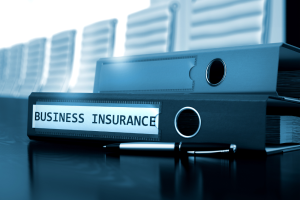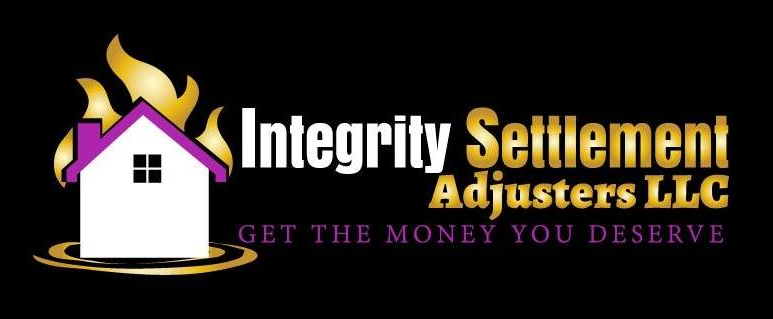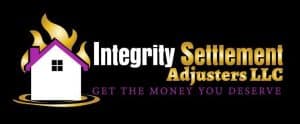
The Landscape of Commercial Insurance Claims
In today’s dynamic business environment, companies face a myriad of risks that can impact their operations and financial stability. From property damage to liability issues, the spectrum of potential claims is vast. Understanding the most common types of commercial insurance claims empowers business owners to better prepare for and mitigate these risks.
Recent studies indicate that a significant proportion of small businesses will need to file an insurance claim within a decade of operation. This statistic underscores the importance of not only having adequate insurance coverage but also being well-versed in the claims process. By familiarizing themselves with common claim scenarios, business owners can make informed decisions about their insurance needs and risk management strategies.
Burglary and Theft: A Persistent Threat
Among the various types of commercial insurance claims, those related to burglary and theft consistently rank at the top. This category encompasses a wide range of incidents, from external break-ins to internal employee theft. The prevalence of these claims highlights the need for comprehensive security measures and robust insurance coverage.
External Theft: Securing Your Premises
External theft poses a significant risk to businesses across industries. To mitigate this threat, companies should consider implementing the following measures:
-
- Installing state-of-the-art security systems with 24/7 monitoring
- Enhancing lighting around the property to deter potential intruders
- Implementing access control systems to restrict entry to authorized personnel
- Regularly reviewing and updating security protocols
Internal Theft: Addressing Employee Dishonesty
Surprisingly, a substantial portion of theft claims stem from employee dishonesty. This underscores the importance of:
-
- Conducting thorough background checks during the hiring process
- Implementing strict inventory management systems
- Fostering a culture of integrity and accountability within the organization
- Considering employee theft endorsements as part of your insurance coverage
By addressing both external and internal theft risks, businesses can significantly reduce their vulnerability to these common claims.
Water Damage: A Silent Destroyer
Water-related damage claims rank high among commercial insurance incidents, often resulting in substantial financial losses. These claims can arise from various sources, including natural disasters, plumbing failures, and even gradual leaks that go unnoticed.
Preventive Measures for Water Damage
To minimize the risk of water damage, businesses should:
-
- Conduct regular inspections of plumbing systems and roofing
- Install water detection devices in areas prone to leaks
- Ensure proper drainage systems are in place around the property
- Develop and implement a comprehensive maintenance schedule
Understanding Coverage for Water Damage
It’s crucial to note that standard commercial property insurance policies may not cover all types of water damage. For instance, flood damage often requires separate coverage. Business owners should carefully review their policies and consider additional endorsements to ensure comprehensive protection against water-related risks.
Slips, Trips, and Falls: Navigating Premises Liability
Customer injuries due to slips, trips, and falls represent a significant portion of commercial insurance claims. These incidents can lead to costly lawsuits and damage to a company’s reputation. Proactive measures to prevent such accidents are essential for every business.
Creating a Safe Environment
To reduce the risk of slip and fall accidents, businesses should:
-
- Implement regular cleaning and maintenance schedules
- Use slip-resistant flooring materials in high-traffic areas
- Ensure proper lighting throughout the premises
- Place warning signs in areas with potential hazards
The Role of General Liability Insurance
General liability insurance plays a crucial role in protecting businesses from financial losses related to customer injuries. This coverage typically includes:
-
- Medical expenses for injured parties
- Legal defense costs in case of lawsuits
- Settlements or judgments awarded to plaintiffs
By combining preventive measures with comprehensive liability coverage, businesses can significantly mitigate the risks associated with premises liability claims.
Fire Damage: Protecting Your Assets
Fire-related claims, while less frequent than some other types, often result in substantial losses for businesses. The devastating nature of fire damage underscores the importance of both prevention and adequate insurance coverage.
Fire Prevention Strategies
Effective fire prevention measures include:
-
- Installing and maintaining fire suppression systems
- Conducting regular fire safety inspections
- Training employees on fire safety protocols and evacuation procedures
- Properly storing flammable materials and maintaining electrical systems
Comprehensive Fire Coverage
When it comes to insurance, businesses should ensure their policies provide:
-
- Coverage for property damage caused by fire
- Business interruption insurance to compensate for lost income during recovery
- Coverage for smoke and water damage resulting from fire suppression efforts
By taking a proactive approach to fire safety and securing comprehensive coverage, businesses can better protect themselves from the potentially catastrophic effects of fire-related incidents.
Weather-Related Claims: Battling the Elements
Severe weather events, including windstorms, hail, and hurricanes, contribute significantly to commercial insurance claims. The unpredictable nature of these events makes it crucial for businesses to be prepared and adequately insured.
Mitigating Weather-Related Risks
To minimize damage from severe weather, businesses can:
-
- Conduct regular building maintenance, focusing on roofs and exterior structures
- Trim trees and secure outdoor equipment to prevent wind-related damage
- Develop and implement an emergency response plan for severe weather events
- Consider installing impact-resistant windows and doors in high-risk areas
Navigating Weather-Related Coverage
When reviewing insurance policies, businesses should pay attention to:
-
- Specific coverage limits for wind and hail damage
- Exclusions or limitations related to named storms or hurricanes
- The need for separate flood insurance, as standard policies often exclude flood damage
By understanding their coverage and taking preventive measures, businesses can better withstand the financial impact of weather-related incidents.
Product Liability: Protecting Your Brand
For businesses involved in manufacturing, distributing, or selling products, product liability claims pose a significant risk. These claims can arise from injuries or damages caused by defective or unsafe products, potentially leading to costly lawsuits and reputational damage.
Minimizing Product Liability Risks
To reduce the likelihood of product liability claims, businesses should:
-
- Implement rigorous quality control processes
- Provide clear and comprehensive product instructions and warnings
- Maintain detailed records of product design, testing, and manufacturing processes
- Stay informed about industry standards and regulations
The Importance of Product Liability Insurance
Product liability insurance provides crucial protection for businesses, covering:
-
- Legal defense costs in case of lawsuits
- Settlements or judgments awarded to plaintiffs
- Expenses related to product recalls
By combining risk management practices with comprehensive insurance coverage, businesses can better protect themselves from the potentially devastating effects of product liability claims.
Cyber Liability: Navigating Digital Risks
In today’s digital age, cyber liability has emerged as a growing concern for businesses of all sizes. Data breaches, ransomware attacks, and other cyber incidents can result in significant financial losses and reputational damage.
Strengthening Cybersecurity Measures
To reduce the risk of cyber-related claims, businesses should:
-
- Implement robust cybersecurity protocols and regularly update them
- Conduct employee training on cybersecurity best practices
- Use encryption and multi-factor authentication for sensitive data
- Regularly back up data and test recovery procedures
Understanding Cyber Liability Coverage
Cyber liability insurance typically covers:
-
- Costs associated with data breaches, including notification and credit monitoring for affected parties
- Legal expenses related to cyber incidents
- Expenses for restoring or recovering lost data
- Business interruption losses due to cyber attacks
As cyber threats continue to evolve, businesses must stay vigilant and ensure their insurance coverage adequately addresses these emerging risks.
Business Interruption: Safeguarding Your Revenue Stream
Business interruption claims arise when a company’s operations are disrupted due to covered events such as fires, natural disasters, or other unforeseen circumstances. These claims can be critical for businesses to recover lost income and maintain financial stability during periods of forced closure or reduced operations.
Preparing for Business Interruptions
To minimize the impact of business interruptions, companies should:
-
- Develop and regularly update a comprehensive business continuity plan
- Identify critical operations and establish backup systems or alternative locations
- Maintain accurate financial records to support potential claims
- Consider supply chain vulnerabilities and develop contingency plans
Key Aspects of Business Interruption Coverage
When reviewing business interruption insurance, pay attention to:
-
- The waiting period before coverage kicks in
- The duration of coverage provided
- Specific exclusions or limitations in the policy
- Coverage for extra expenses incurred to resume operations
By understanding the nuances of business interruption coverage and implementing robust continuity plans, businesses can better weather unexpected disruptions to their operations.
Professional Liability: Protecting Your Expertise
For businesses providing professional services or advice, professional liability claims (also known as errors and omissions claims) represent a significant risk. These claims typically arise from allegations of negligence, errors, or omissions in the performance of professional duties.
Mitigating Professional Liability Risks
To reduce the likelihood of professional liability claims, businesses should:
-
- Maintain clear communication with clients and document all interactions
- Implement quality control measures and peer review processes
- Stay current with industry standards and best practices
- Use detailed contracts that clearly outline the scope of services and limitations
Understanding Professional Liability Coverage
Professional liability insurance typically covers:
-
- Legal defense costs in case of lawsuits
- Settlements or judgments awarded to plaintiffs
- Costs associated with regulatory investigations or disciplinary proceedings
By combining risk management practices with comprehensive professional liability coverage, businesses can better protect themselves from the financial and reputational risks associated with these claims.
Workers’ Compensation: Protecting Your Workforce
Workers’ compensation claims are a common occurrence for many businesses, arising from workplace injuries or illnesses. These claims can result in significant costs, including medical expenses, lost wages, and potential legal fees.
Promoting Workplace Safety
To reduce the frequency and severity of workers’ compensation claims, businesses should:
-
- Implement comprehensive safety training programs
- Conduct regular safety audits and address identified hazards promptly
- Encourage a culture of safety awareness among employees
- Provide appropriate personal protective equipment (PPE) for all job roles
Key Aspects of Workers’ Compensation Coverage
When reviewing workers’ compensation policies, businesses should consider:
-
- Coverage limits and exclusions
- Reporting requirements for workplace injuries
- Return-to-work programs and light duty options
- The potential impact of claims on future premiums
By prioritizing workplace safety and understanding their workers’ compensation coverage, businesses can better manage the risks associated with employee injuries and illnesses.
Navigating the Claims Process: Best Practices for Businesses
Understanding how to effectively navigate the commercial insurance claims process is crucial for businesses to maximize their coverage and minimize disruptions. By following best practices and working closely with their insurance providers, companies can streamline the claims process and achieve more favorable outcomes.
Immediate Response and Documentation
When an incident occurs that may lead to a claim, businesses should:
-
- Ensure the safety of all individuals involved
- Document the incident thoroughly, including photos, witness statements, and relevant details
- Notify the insurance provider promptly, following the specified reporting procedures
- Take necessary steps to prevent further damage or losses
Working with Insurance Adjusters
During the claims process, businesses should:
-
- Cooperate fully with the insurance adjuster, providing requested information promptly
- Keep detailed records of all communications and expenses related to the claim
- Consider seeking professional assistance, such as a public adjuster or attorney, for complex claims
- Review settlement offers carefully and negotiate if necessary
Learning from Claims Experience
After resolving a claim, businesses should:
-
- Analyze the incident to identify potential areas for improvement in risk management
- Update policies and procedures to prevent similar incidents in the future
- Review insurance coverage to ensure it remains adequate for the business’s evolving needs
- Consider implementing additional loss prevention measures based on the claim experience
By approaching the claims process strategically and learning from each experience, businesses can enhance their overall risk management practices and potentially reduce future claims.
We Get You The Money You Deserve From Your Commercial Insurance Claim
We leverage our in-depth knowledge of insurance policies and regulations to effectively negotiate with the insurance company on your behalf, allowing you to rebuild and recover with minimal disruption to your business.
> Learn More
Understanding the landscape of commercial insurance claims empowers businesses to better protect their assets, operations, and reputation. By implementing proactive risk management strategies, securing comprehensive insurance coverage, and effectively navigating the claims process, companies can build resilience against a wide range of potential losses. As the business environment continues to evolve, staying informed about emerging risks and regularly reviewing insurance needs will be crucial for long-term success and stability.
Contact Us (954-292-4426) For a Free Consultation!
—
 About Integrity Settlement Adjusters
About Integrity Settlement Adjusters
Integrity Settlement Adjusters is a leading public adjusting firm dedicated to advocating for the rights of property owners in the aftermath of property damage and disasters. With a commitment to honesty, transparency, and professionalism, Integrity Settlement Adjusters assists you in navigating the complex insurance claim process to ensure fair and just compensation for your property damage. We work tirelessly to represent your best interests, offering personalized support and expertise every step of the way. By upholding the highest ethical standards and prioritizing client satisfaction, Integrity Settlement Adjusters has earned a reputation for reliability and integrity within the public adjuster industry.
> Learn More

 About Integrity Settlement Adjusters
About Integrity Settlement Adjusters